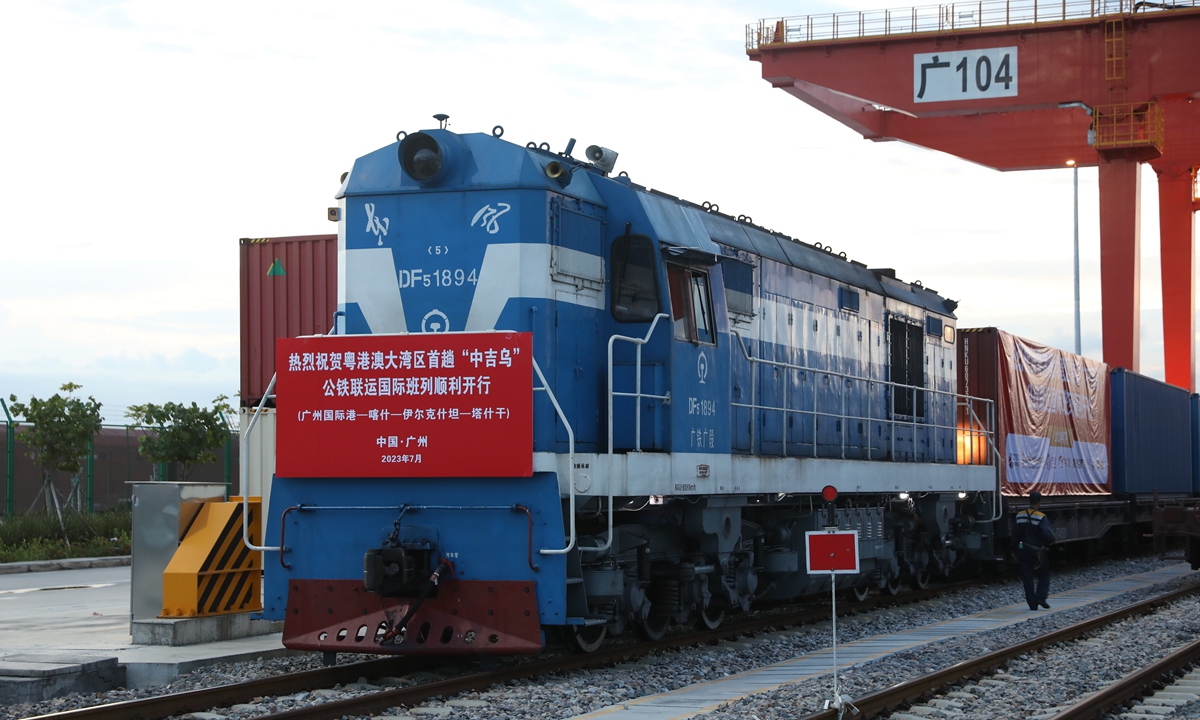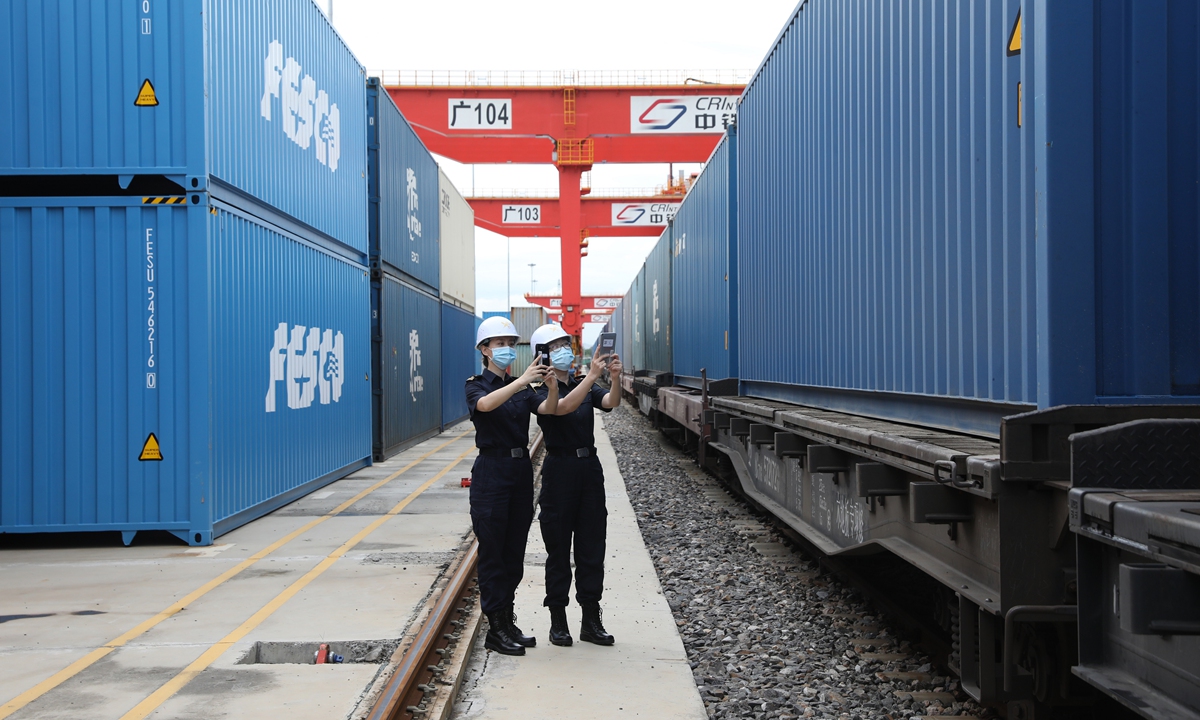
The first China-Kyrgyzstan-Uzbekistan (CKU) international multimodal freight train departs at Guangzhou International Port Station on July 4, 2023. Photo: Courtesy of Guangzhou Customs
China's Guangdong-Hong Kong-Macao Greater Bay Area and Beijing-Tianjin-Hebei Region on Tuesday launched their first China-Kyrgyzstan-Uzbekistan (CKU) international multimodal freight train services, enhancing connectivity between Central Asia and two major economic hubs in China, China Media Group (CMG) reported.
The trains carrying tons of Chinese products took off on the day when the Shanghai Cooperation Organization summit was held virtually, chaired by India.
The new route linking the Greater Bay Area adopts containerized "railway-road" multimodal transport system. After arriving in Northwest China's Xinjiang Uygur Autonomous Region via railway, the cargo will then be transferred to road transport and exit through the Irkeshtam port, passing through Kyrgyzstan and ultimately arriving in Uzbekistan, CMG said.
Compared to traditional routes, the new line saves nearly five days in transit time, providing a more efficient and expedited logistics channel for trade between China and Central Asian countries, according to the report. The other route linking Beijing-Tianjin-Hebei Region also uses multimodal transport. With a total length of 6,000 kilometers, it will take 12 days to reach Uzbekistan.
"[These routes] have offered new choices for customers who could make delivery arrangements based on their particular needs, Dylan Feng, a sales executive of Austrian logistical company Gebrüder Weiss' Chinese branch located in Ningbo, East China's Zhejiang Province, told the Global Times on Tuesday.
The company offers logistics service between China and all five Central Asian countries.
"For some traders, the five days being saved could be a great opportunity, especially for some high-end products with higher delivery efficiency," Zhu Yongbiao, executive director of the Research Center for the Belt and Road at Lanzhou University, told the Global Times on Tuesday.
Talking about the route linking the Greater Bay Area, Zhu said that "more importantly, the launch of the new route is of great strategic importance as it crosses the colossal Chinese market and links China's two economic hubs with Central Asia."
Besides facilitating bilateral trade, the routes will help promote the integration of regional supply chains, Zhu noted.
Previously, goods transportation between China and Central Asian countries largely relied on China-Europe freight train route via the Horgos port. With the rapid increase in trade volume, cross-port congestion has worsened, necessitating the establishment of a new transportation corridor to accelerate cargo flow, CMG said.
Accelerating trade and economic exchanges will pave the way for the future operation of the China-Kyrgyzstan-Uzbekistan railway project which is expected to start construction within this year, according to Zhu.
There is huge potential for the development of the CKU Railway as it will have better transportation capacity and efficiency than road transportation, Zhu added.

Two customs officials from the port inspect the train as it departs from the station on July 4, 2023. Photo: Courtesy of Guangzhou Customs
Once completed, the railway will become the shortest route to transport goods from China to Europe and the Middle East, cutting the freight journey by 900 kilometers and saving seven to eight days in transit time.
The debut of the two rail routes follows a test run on June 9 of a CKU transport route linking northwestern China's Xinjiang and Tashkent, capital of Uzbekistan.
Earlier in July 2021, a CKU "railway-road" multimodal freight train under the China-Europe Railway Express system was launched from Yiwu, the world's largest small-commodities hub in East China's Zhejiang Province.





